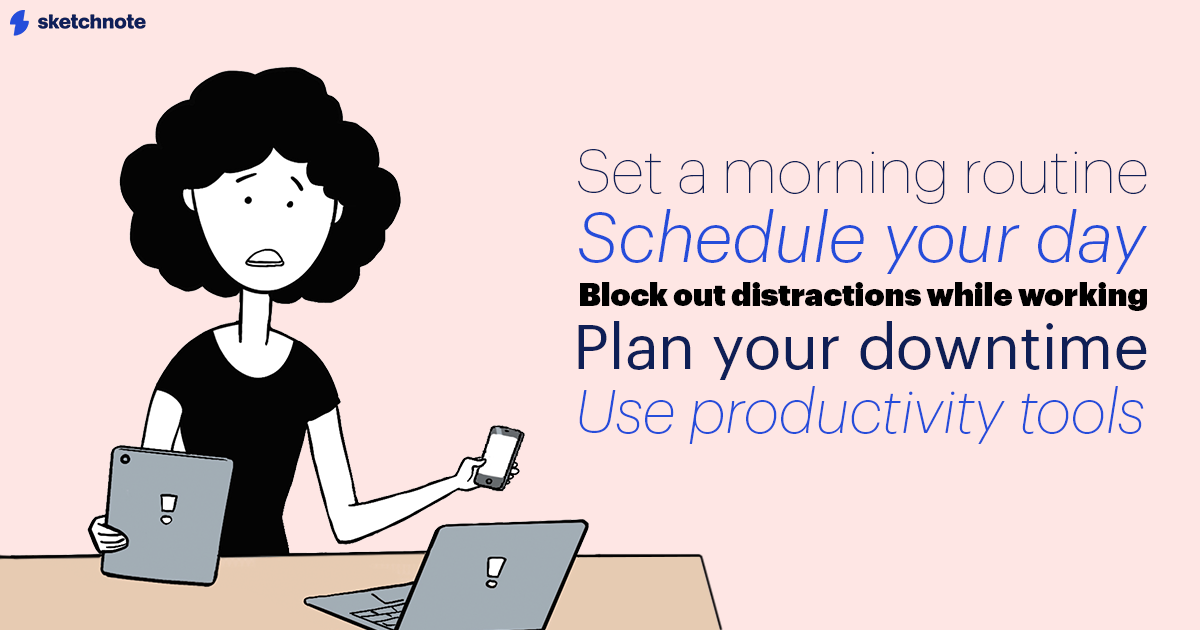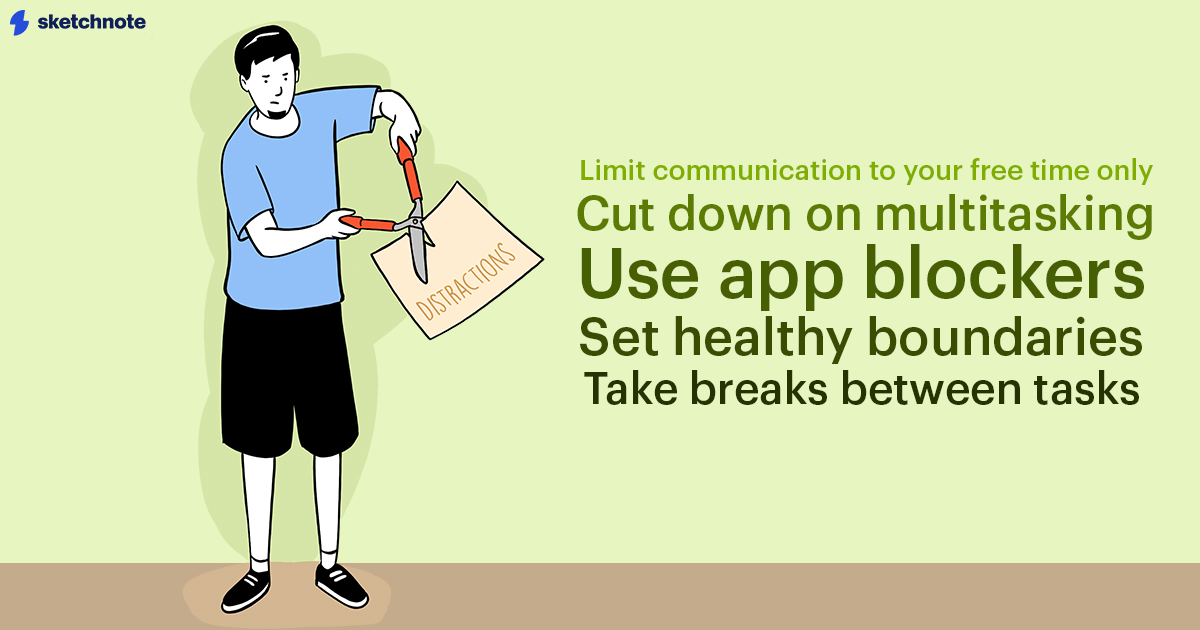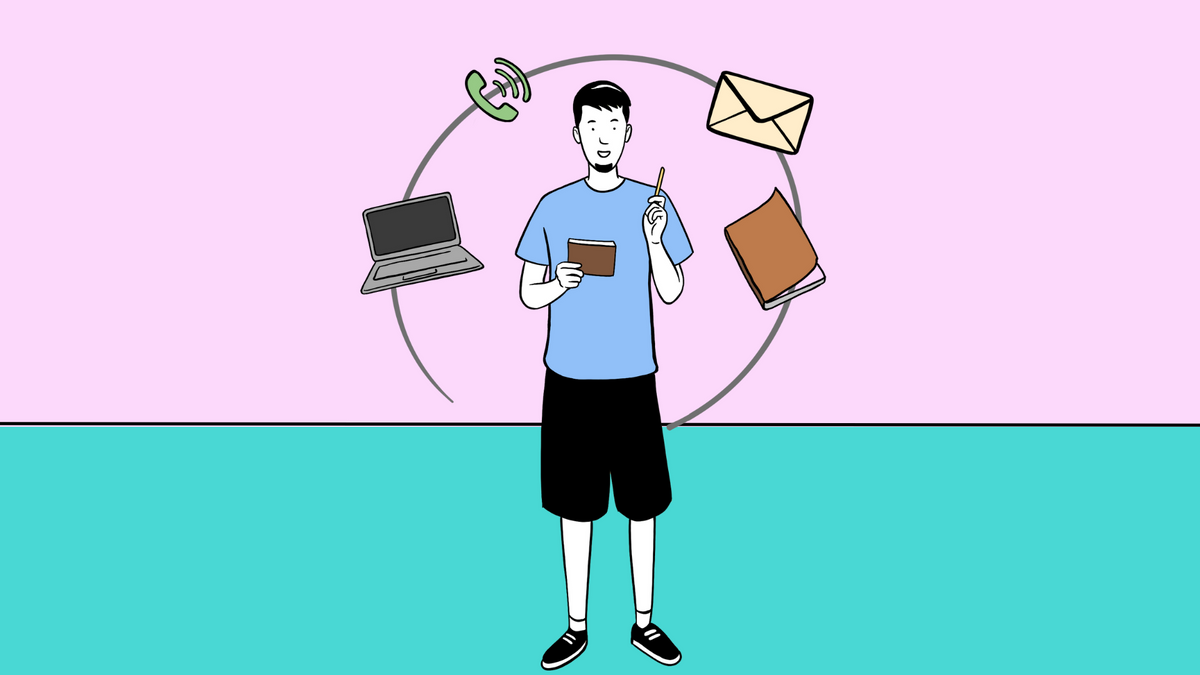With our ever-expanding to-do lists, it can often feel like we're being pulled in a million directions. Our work can often demand a high level of productivity, on top of personal commitments that one may have. What's more, working in a growing company or a startup can also mean working at breakneck speed to execute the next big thing! Apart from that, we all have a set of personal goals, like mastering a musical instrument or nurturing a relationship.
We also live in a world full of distractions. Popular short-form content like tweets, TikTok and Instagram Reels have collectively reduced our attention spans. There's always a new TV show to catch up with, or a new book to read. With so much to do, it can get overwhelming very quickly! Don't worry; we've all been there.
One has a lot to do and such little time for oneself, it's no surprise that most of us lead a more sedentary lifestyle than our predecessors did—the kind that often leaves us drained and devoid of energy. These activities take away our time and energy, which can be better utilized working towards our life goals It's therefore important to make the best use of our time and introduce some productivity-enhancing habits in our lives.
But before we begin to talk about pragmatic steps to boost productivity, let's understand what productivity means. One could define productivity as a state where efficiency is enhanced. The term has an economic connotation too, but in this post, we will focus on its personal meaning. On an individual level, it refers to how efficiently we can complete tasks that are important to us.
So, let's discuss the benefits of being productive and five hands-on strategies to maximize your productivity!
The Benefits of Being Productive at Work: Why It's Important
It's a no-brainer that being productive has a world of benefits! The intention of being productive provides us with a sense of purpose and momentum; it propels us to move forward in the face of challenges. One's quest for productivity connects our actions with our goals, which is the only way to get to where we're going. These efforts also give us a sense of control over our actions, and choices, as we are on a path towards our ambitions.
At work, being productive means achieving everything you've set out to do on a particular day. This helps you maintain a work-life balance because maximizing your productivity in the time allotted during your office hours allows you to live your life outside of it.
Imagine getting sufficient time to relax after your work is complete, instead of working to meet deadlines after work hours! Finishing your work in the given timeframe can also keep stress at bay and prevent mistakes and delays from appearing in your assignments. Efficiently organizing your time allows you to have room for more growth at work.
Convinced about the need for bringing productivity into your routine? Let's find out how we can inculcate productive habits in daily life.

How to Be More Productive at Work & Home: Expert Strategies and Tips
We often say one is “being productive,” as if it's an innate attribute in a person. However, being productive more often than not boils down to a few habits that one forms throughout their life. These habits seep in by watching parents, or teammates, from a book or podcast, or through self-developed ways. It's all about habit formation then! Here are a few strategies to get super-productive in your day—broken down according to time. Let's go!
Set a morning routine
The way we start the day sets the tone for the rest of it. Obviously then, it's important to get the first few hours of the day right. A lot of us begin our day in a mad rush to get to work, (or logging in if you're a remote employee). It's very tempting to get a few tasks of your day out in the wee hours of the morning, before the mad rush sets in. However, this might be hurting your overall productivity throughout the day. By pushing too hard in the mornings, you could fall prey to slumps by mid-morning or afternoon, something that carries on for the rest of the day. To get ahead of this issue, it's essential to set a solid morning routine.
While we set out to develop our morning routine, here are a few things we need to be mindful of. Ideally, you want to stick to this morning routine for as long as possible. However, there are going to be days when you won't be able to get to it, and that's okay. It's important to be able to get back to this routine the next day. Additionally, on some days, you are going to pick-and-choose activities from your routine that fit that day's time constraint. By being flexible with our routine, we can sustain this for many, many years.
Now that we've established these ground rules, we can focus on building a routine that works! In your morning routine, you want to include one activity each for your body, mind, and soul. This will set you up to face the challenges of the day confidently. Here is a list of activities that can be a part of your morning routine:
- Spend some time on your body and mind by working out,
- Do some breathing exercises and meditate,
- Listen to an inspiring podcast (Psst… Sketchnote has an amazing Startup podcast where startup founders share their journey and learnings along the way),
- Solve a crossword (or a Wordle)
Add to this list any other activity that speaks to you—or remove them! It could be watching the sunrise, getting coffee from your favorite shop, or a walk in the garden. For some, inhaling their morning coffee is the only breathwork they need, and we agree with that!
Schedule your day
Creating a schedule for the day allows you to manage your time in the most efficient manner possible. And to be able to make the most of it, you must treat your schedule as your North Star that can keep you away from wasting time on unnecessary activities like doomscrolling through social media. Filling your day with tasks that are in line with your goals is also a great way to progress towards them. A timetable also helps to keep the anxiety of 'what to do next' at bay, as you have it all planned out! Lastly, sharing this schedule with your team allows them to know when you are available, while also keeping you accountable to your routine.
Now, once you've identified the to-dos for the day, take some time to think about how these tasks add value to your goals. Think of this step as a tool to help you stay on track and prioritize these goals better.
The next step for scheduling is estimating how much time each of these tasks will take. The only rule here is to be realistic while drawing these estimates. A good way to do this is by tracking your time on previously done similar tasks. This gives you a good idea of how much time your tasks on hand will take.
Prioritizing difficult tasks for your peak productivity hours allows you to make the most of them. Using a productivity platform like Sketchnote allows you to not only note all your to-dos in one place on a timesheet but also use a timer to track how long each task takes, which in turn helps you to always be mindful of how you spend your time.
Taking time to reevaluate your schedule every week helps you get better at it. While you're conducting the exercise, check whether projects took longer than you expected them to. If yes, determine what the reason for this deviation was and see how you can minimize these issues. Additionally, find out where your time could be utilized better in the coming week, to maximize productivity and make changes ahead accordingly.

Block out distractions while working
Distractions at the office can look like unplanned meetings, water cooler conversations, and even social media scrolling. Remote workers, on the other hand, have to deal with family members and chores at home, which can hinder their productivity.
When you're at work, intrusions tend to create a break in your flow that's not so easy to get back into. A study conducted at the University of California shows that, on average, it takes 23 minutes and 15 seconds to return to your original task after an interruption. It's therefore important to be mindful to keep these smaller diversions away as much as possible.
A few ways to eliminate distraction at work are:
- Make a commitment that you will limit personal communication to your free time. By creating this habit, your family and friends will know when's the best time to reach out to you, and when you can be fully present with them.
- Single-tasking—the opposite of multi-tasking—ensures that you are not distracted by other tasks. It helps increase the quality of work you produce, and saves a lot of time!
- Use app blockers to ensure that no time is wasted on social media sites. Further, turning email notifications off while doing important tasks will help you focus on your work a lot better.
- Setting healthy boundaries with colleagues can ensure that you don't spend time gossiping, or discussing non-work-related topics in the middle of the workday. You can do this by sharing that you are busy, and scheduling a lunchtime catchup.
- Taking breaks between tasks helps you to stay energized throughout the day. More importantly, these keep you from not give in to unplanned distractions too!
Plan your downtime
Downtime refers to an unstructured time, when activities that do not require much concentration, are done. These include taking a shower, going for a walk or taking a nap. However, activities like scrolling through social media, or playing video games require some degree of concentration, and therefore they are not part of downtime activities.
You'll be surprised to know that taking downtime breaks actually has a close relationship with being productive. A study published by Jackie Coleman and John Coleman showed that brief periods of downtime, such as afternoon naps, can help restore focus and energy. Further, downtime activities help the brain to grasp new skills. It is also a great way to recharge and refocus!
A few activities that you can do in your downtime are:
- Household chores like cleaning the dishes,
- Observing nature and having light conversations with people around you,
- Watering your plants,
- Light stretching.
However, it's important to remember that taking downtime isn't an excuse for being unproductive. It should be used in a planned manner to rest your body and mind for when you need it.
Use productivity tools
Gone are the days of having to look for a pen-and-paper to jot down your tasks. So are the days of purchasing expensive planners, stationery, physical whiteboards, and other productivity tools. The pain of acquiring this planning paraphernalia is done away with the internet!
Creating lists of your goals in specific areas of your life, like finance, career, personal, etc., are all possible on the internet. It's extremely motivating to see all your goals stacked one-on-top-of-another and this helps you get started. Tracking your day on an online calendar also allows you to stay on schedule for each task. With a few clicks, you can set up a separate calendar for each activity, and track progress on it over many, many years! Personal productivity can be even tracked on a Kanban board, where you can enjoy the feeling of dragging your completed tasks to another column!
If you're feeling creative, at any given time, you can quickly pull up an online document and jot down your ideas. Add your to-dos to the document and get to them easily! Scheduling tasks in advance is another great way to pre-plan your day. Further, delegating relevant activities to your teammates truly adds wings to your quest for productivity. All this and so much more is possible with applications like Sketchnote!
Using online productivity tools ensures that all your plans and work stay in one place, and you never have to go looking for it. It's much easier to track progress online than in physical form, which can get quite cumbersome.
For more tips and tricks on being productive, you can check out Sketchnote's free lesson on this topic. While we embark on this journey of enhancing our productivity with these awesome strategies and tools, beware. There is often the danger of overdoing it. Completing tasks, and being high-performing is extremely incentivized in our culture. It's important to look out for signs of emotional stress, exhaustion, and burnout, and get ahead of it if we need to. Planning vacations, and taking time off—every few months—is a great way to prevent any unhealthy behavior that stems from the need to be productive constantly.



